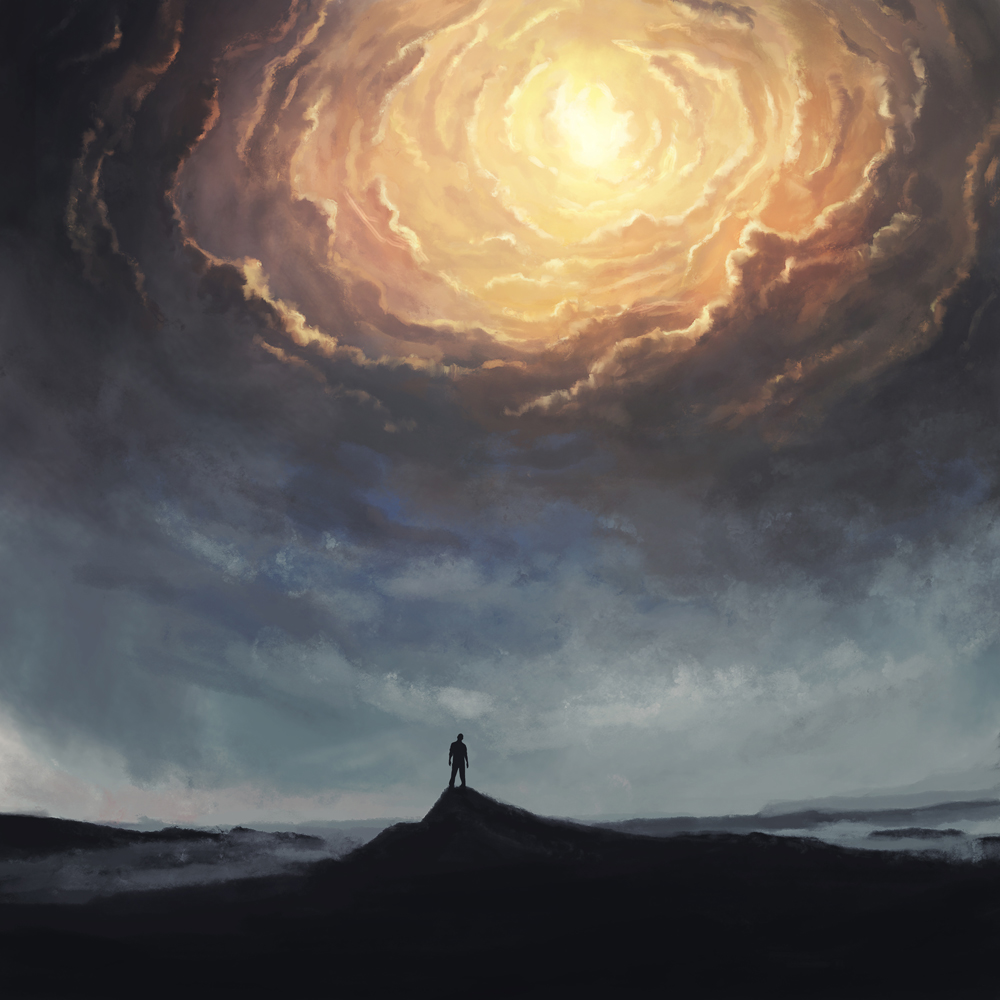
|
This is a non-WLC article. When using resources from outside authors, we only publish the content that is 100% in harmony with the Bible and WLC current biblical beliefs. So such articles can be treated as if coming directly from WLC. We have been greatly blessed by the ministry of many servants of Yahuwah. But we do not advise our members to explore other works by these authors. Such works, we have excluded from publications because they contain errors. Sadly, we have yet to find a ministry that is error-free. If you are shocked by some non-WLC published content [articles/episodes], keep in mind Proverbs 4:18. Our understanding of His truth is evolving, as more light is shed on our pathway. We cherish truth more than life, and seek it wherever it may be found. |

In his constant preaching, as demonstrated in 1 Corinthians 15 and in the Thessalonian correspondence, Paul clearly identified the resurrection from the grave as the ultimate and only source of hope and comfort for every saint throughout the ages. In a one-time future Resurrection Day for the faithful, the Lord Yahushua Christ will descend from heaven. The dead in Christ shall rise and “be revealed with him in glory” (Col. 3:4). At the same time all living Christians will be caught up with them in the air (1 Thess. 4:13-18). “In the twinkling of an eye” the body of each covenant person will change to be an imperishable one. They will put on immortality, by being raised as spiritual, powerful, glorious, heavenly persons (1 Cor. 15:42-44, 51-54).
These marvelous events will occur “at his coming” (1 Thess. 5:23; 1 Cor. 15:23), “at his appearing at the proper time” (1 Tim. 6:14-15), at the “last day” (John 6:40) when there is a “resurrection of life” (John 5:29). So “we eagerly wait for him” (Phil. 3:20) at the “revelation of Yahushua Christ” (1 Pet. 1:5, 7, 13; Rom. 8:18-19; 1 Cor. 1:7), his “appearing” (1 Tim. 6:14; Tit. 2:13; 1 John 3:2-3), his coming (parousia) in glory to establish his Kingdom on earth.
The righteous “will be like him when he appears...at his coming” and shall see Christ “as he is” (1 John 2:28; 3:2). John would be speaking out of order by looking forward to seeing Christ “as he is” when he returns yet future, if the righteous dead will have known him in heaven long before his future coming. The saints will be like Christ only when they acquire glorious bodies “at the last trump” on Resurrection Day (Phil. 3:20-21; 1 Cor. 15:50-55). All who have not thus become “like Christ” will not attain to the Kingdom (see v. 50). Therefore, nobody could possibly have entered “heaven” at the time of death but must await entrance into the Kingdom yet future when Christ appears on that glorious Day. Then for the first time all of the saved of all the ages will set eyes on Yahushua, not before.
The popular scheme rehearsed and repeated at funeral services is thus most misleading. It discourages a biblical understanding of the divine program, which the Bible urges us to believe!

Awkward indeed is tradition’s Resurrection Day scenario, where the “souls” of the righteous allegedly descend with Yahushua from heaven and simultaneously earthly bodies arise from their graves. In the popular scheme “souls” must actually go ahead of him, so they can re-enter their graves before being raised out of them! Tradition is obligated to tell us precisely how this will be done. It then reinforces this by every possible means, in spoken word, popular and formal, and in writing.
Instead and in stark contrast, Paul set the Thessalonian believers at ease about their dear departed by writing that on the yet future Resurrection Day the Lord Yahushua Christ solo “will descend from heaven with a shout and the righteous dead will rise from graves to meet the Lord in the air” (1 Thess. 4:16-17). Paul wanted us to “comfort one another with these words” (v.18).
When Yahushua spoke of conditions in the Kingdom (Luke 20:34-36), he described what would prevail “at the resurrection” (Matt. 22:30) among the sons (products) of the resurrection. If death takes the saints to “heaven” at death as alleged, why does the Lord call them “sons of the resurrection”? This is altogether meaningless if the resurrection and judgment amount to nothing more than a brief interlude after a previous disembodied “heavenly” existence.
The popular view of death, judgment, reward and resurrection appears to be hopelessly confused when compared with the lucid texts of Scripture.
Repayment for good deeds is awarded “at the resurrection of the righteous” (Luke 14:14), at Christ’s future coming. What favor can be bestowed if the saints had been enjoying “heaven” for centuries upon centuries before Resurrection Day? Paul hoped to attain the resurrection (Acts 23:6; 24:15; Phil. 3:11). This statement is false if, at death, the apostle would be awarded “heaven” and would reside there with Christ before Resurrection Day.
After Yahushua ascended from earth (Acts 1:11), two angels directed the apostles’ attention to the fact that he would come back again just as he had departed. (The Jehovah’s Witnesses’ claim that the second coming was in 1914 is evidently false.) Our Lord’s awakening the saints from the grave at his future return is the hope and consoling pole star of all saints throughout the ages. But this scenario is thwarted and derailed by tradition’s insistence on the faithful lodging with Yahushua in heaven during the interval between death and Resurrection Day. The popular scheme is incoherent. Many have not thought this through.
At the end of his ministry, Yahushua said that he was going to prepare a place for the disciples (John 14:2; cp. Ps. 115:16). Earlier, he had told them, “Where I am going, you cannot come” (John 13:33). He softened this statement by assuring them that he would come again and “receive them to himself” (John 14:3) so that they might be where he is. Clearly, the disciples could not come to Yahushua. What is the point of his coming again to earth if the saints possess a heavenly habitation instantly at the time of death? It is impossible for Yahushua to “receive them to himself” in a place where they already would be with him! How pleased is Yahushua with a scheme, which makes the New Testament so confusing and inconsistent?
There would be no reason for Christ as holder of the keys of death and Hades (Rev. 1:18) to reassure John and the readers of the book of Revelation of that fact, if the righteous dead did not have to concern themselves with resurrection from Hades—to happen at Christ’s return, and only then. There is only one way out of death and that is via resurrection of the whole man. No wonder then that David and Yahushua spoke of the “sleep of death” (Ps. 13:3; John 11:11, 14). This is the real interim between death and resurrection. Sleep is a condition of unconsciousness. How crippling has been the awful effects of Platonic philosophy on the faith of the Bible? Plato and Yahushua should never have been mixed.
The quest for immortality, deathlessness forever, indestructible life, ought to be the first priority for us all as frail and mortal! Paul wrote of the Christian faith in these beautiful words. The whole point of belief in the Gospel is that Yahuwah will give eternal life to “those who by patience in well-doing seek for glory and honor and immortality” (Rom. 2:7, ESV).
We must seek that immortality which is revealed in the Gospel (2 Tim. 1:10) and which will be conferred on those who persist to the end (Matt. 24:13; Rom. 13:11). We await the gift of immortality to be bestowed only at the return of Yahushua, although it may be tasted by anticipation through the spirit of Yahuwah, now in this life.
